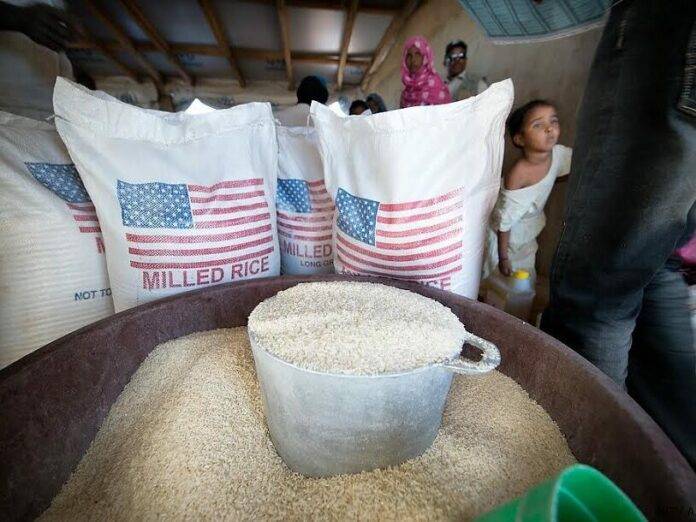“`html
Resumption of Food Aid Shipping Announced by State Department
On Saturday, Senator Jerry Moran (R-Kan.) announced that the U.S. State Department has authorized the resumption of shipping and distribution of food aid. This decision comes in light of a significant backlog of approximately $560 million worth of food commodities that had been stranded in ports worldwide, including around $340 million within the United States.
Moran’s office confirmed that the State Department took steps to release these essential commodities by issuing notices to various aid organizations. In a post shared on X, Moran expressed gratitude towards Secretary of State Marco Rubio for his role in facilitating this vital aid. He stated, “GOOD NEWS: State Dept. has approved shipping to resume, allowing NGOs to distribute the $560 million of American-grown food aid sitting in US & global ports to those in need. Thanks to @SecRubio for helping make certain this life-saving aid gets to those in need before it spoils.”
According to sources within the wheat industry, the halted commodities include a substantial quantity of about 235 million metric tons of wheat valued at $65 million. This backlog has raised concerns regarding food security and malnutrition, especially in regions heavily reliant on U.S. agricultural exports.
The current situation regarding food aid and related health services has been exacerbated by the rapid downsizing of the U.S. Agency for International Development (USAID) during the previous administration. The Trump administration’s swift actions to limit the agency’s operations have had dire consequences for food aid, malnutrition treatment, and medical care. Many programs that were essential for addressing hunger and health crises were either halted or severely diminished.
While Secretary Rubio had previously indicated that emergency food assistance could continue despite a stop-work order, experts expressed concerns that the drastic reduction in USAID’s workforce, stemming from Elon Musk’s controversial Department of Government Efficiency initiative, left the agency ill-equipped to manage the logistics of food aid distribution and to process waivers necessary for resuming operations.
In response to the challenges faced by aid organizations, Rubio recently suggested that the confusion regarding the distribution of food aid was largely due to the incompetence of the organizations themselves. He indicated that groups unable to secure the necessary waivers were not fulfilling their responsibilities effectively.
The State Department has remained silent on the issues surrounding the stalled food aid, leading to further scrutiny regarding the management of humanitarian assistance under the current administration. The lack of clarity and support for aid organizations has raised questions about the government’s commitment to addressing food insecurity, particularly in regions where the need is critical.
As the situation evolves, it is crucial for stakeholders, including government agencies, non-governmental organizations (NGOs), and the public, to advocate for a more stable and efficient framework for delivering humanitarian assistance. The need for timely and effective food aid is more pressing than ever, and the recent decision by the State Department to allow shipping to resume is a positive step forward.
Moving forward, it will be essential to monitor the implementation of this decision and to ensure that aid reaches those who are most vulnerable. The collaboration between government agencies and NGOs will play a vital role in overcoming logistical hurdles and ensuring that food aid does not go to waste. The health and well-being of many depend on the successful distribution of these essential commodities, highlighting the importance of a coordinated response to food insecurity.
In conclusion, the resumption of food aid shipping signals a renewed commitment to addressing hunger and malnutrition on both domestic and international fronts. As the global community grapples with the ongoing effects of crises that threaten food systems, it is imperative that all parties work together to create sustainable solutions that prioritize the needs of those most affected. The forthcoming actions by the State Department and aid organizations will be critical in shaping the future of food assistance and humanitarian aid efforts.
“`




